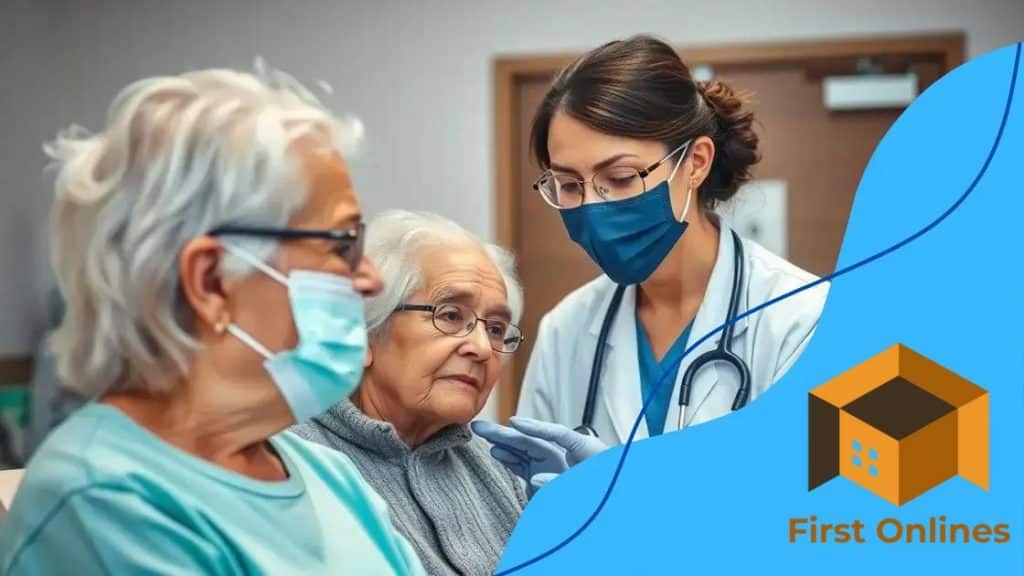Federal funding for low-income seniors to access medical care

Anúncios
Federal funding for low-income seniors improves access to essential medical care, enhances quality of life, and supports chronic disease management, making healthcare affordable and available to those who need it most.
Federal funding for low-income seniors to access medical care is an essential lifeline for many individuals. Have you ever thought about how this funding can change lives? Let’s dive into its significance and how it benefits our senior community.
Anúncios
Understanding federal funding for seniors
Understanding federal funding for seniors is vital for ensuring that older adults receive the medical care and support they need. This funding can help cover various health expenses, making a significant difference in their quality of life. It’s important to know how these programs work and how they can be accessed by those who qualify.
What is federal funding?
Federal funding consists of financial assistance provided by the government to help low-income seniors manage their healthcare costs. This assistance can include coverage for hospital visits, prescription medications, and preventive care.
Key programs for seniors
Various programs are designed to assist seniors financially. Understanding these programs helps in knowing which aid can be beneficial. Some key programs include:
Anúncios
- Medicare: A federal health insurance program for individuals aged 65 and older.
- Medicaid: A program that aids low-income individuals in receiving healthcare services.
- Supplemental Security Income (SSI): This provides financial support to low-income seniors to help with living expenses.
Each of these programs has specific eligibility requirements. It’s crucial for seniors to familiarize themselves with these details to take full advantage of the funding available to them. Accessibility to federal funds can sometimes depend on specific criteria, including income level and healthcare needs.
Additionally, local resources can guide seniors through the application process for these funding opportunities. Community centers, health clinics, and senior advocacy groups often provide valuable information and support. These organizations help demystify the application process and ensure that seniors can access what they need.
Overall, the existence of federal funding for seniors serves as a safety net, allowing them to focus on their health rather than financial burdens. Awareness of these programs can empower seniors to seek the care they require without fear of overwhelming costs.
Eligibility criteria for funding assistance
To access funding assistance for healthcare, individuals must meet specific eligibility criteria. Understanding these requirements can help low-income seniors navigate the process and obtain the support they need. Various factors play a role in determining eligibility, and they are crucial for ensuring that assistance reaches those who need it most.
Income thresholds
One of the primary criteria is the individual’s income level. Federal programs typically set limits based on the median income of the area. Seniors must demonstrate that their income falls below these established thresholds to qualify for funding. These limits adjust periodically based on various factors, making it essential to stay updated.
Age and residency requirements
Eligibility often also includes age and residency conditions. For many programs, applicants must be at least 65 years old. Furthermore, applicants need to be U.S. citizens or legal residents to qualify for assistance. Meeting these basic criteria is a fundamental first step towards receiving support.
Another vital aspect is the need for documentation. Applicants may need to provide proof of their income, age, and residency status. This documentation helps verify their eligibility and ensures that the assistance is correctly allocated.
Aside from these general criteria, different programs may have unique requirements. For instance, some may focus on specific health conditions or other factors. Seniors should research and understand the specific eligibility for each program available to them. Resources such as local community centers or senior services can offer valuable guidance in this process.
The combination of these factors creates a framework that ensures federal funding targets individuals who genuinely need financial support for healthcare. By understanding and fulfilling these criteria, seniors can significantly improve their chances of receiving assistance.
How to apply for medical care funding

Knowing how to apply for medical care funding can significantly help low-income seniors access essential healthcare services. The application process can seem daunting, but understanding the steps involved makes it much more manageable. Gathering the necessary information and documents is the first step towards receiving assistance.
Understanding the application process
The application process begins with determining which funding programs to apply for. Each program may have different requirements and forms. It’s crucial to research these programs to find the one that fits your needs best. Check government websites or local resources for accurate and updated information.
Gathering necessary documents
Before starting the application, gather essential documents. This includes:
- Proof of income, such as pay stubs or tax returns.
- Identification, like a driver’s license or Social Security card.
- Proof of residency, which could be a utility bill or a rental agreement.
Having these documents ready helps streamline the process and reduces delays in application review.
Once the correct program is identified and the necessary documents are gathered, filling out the application is the next step. Many applications can be completed online, making the process more convenient. However, some programs may still require paper applications. Ensure that all information is accurate and complete to avoid complications.
After submitting your application, be patient. It can take time for the program to process requests. During this waiting period, keep an eye on any communication from the funding organization. They may request additional information or documents.
Access to funding assistance can greatly enhance a senior’s quality of life. By following these steps, seniors can successfully navigate the complex landscape of healthcare funding.
Programs available for low-income seniors
There are several programs available for low-income seniors that provide vital support for healthcare and related needs. Understanding these programs can help seniors access essential services and improve their quality of life. Each program has unique benefits, so exploring the options is important.
Medicare
Medicare is a federal health insurance program primarily for individuals aged 65 and older. It helps cover hospital care, doctor visits, and various medical services. There are different parts to Medicare, including:
- Part A: Covers hospital stays and inpatient care.
- Part B: Covers outpatient services and doctor visits.
- Part D: Provides prescription drug coverage.
Many seniors qualify for Medicare, and it is a cornerstone of healthcare access.
Medicaid
Medicaid is a state and federal program that assists low-income individuals, including seniors, in paying for healthcare. Eligibility varies by state, but it typically covers a range of services, such as:
- Nursing home care.
- Home health services.
- Personal care assistance.
Applying for Medicaid can greatly benefit seniors with limited income and resources.
Supplemental Nutrition Assistance Program (SNAP)
The Supplemental Nutrition Assistance Program, better known as SNAP, helps low-income seniors afford food. This program provides monthly benefits on a card that can be used to purchase groceries. Proper nutrition is crucial for maintaining health, making this program especially important.
Low-Income Home Energy Assistance Program (LIHEAP)
The Low-Income Home Energy Assistance Program assists seniors with energy costs, ensuring they can heat or cool their homes adequately. This program helps pay for heating fuel, electricity, and other energy needs during extreme weather conditions.
Accessing these programs can be a crucial step for low-income seniors to receive the support they need for healthcare and daily living expenses. Staying informed about available resources can empower seniors to make the best choices for their health and welfare.
Impact of funding on health outcomes
The impact of funding on health outcomes for low-income seniors can be transformative. Access to financial resources enables seniors to obtain necessary medical care, leading to better health management. With adequate funding, seniors can afford regular check-ups, medications, and preventive care that they might otherwise forgo due to cost.
Improved Access to Care
When funding is available, seniors are more likely to seek medical help when needed. Access to healthcare services promotes early diagnosis and treatment. This proactive approach can prevent complications from chronic conditions, ultimately leading to healthier lives.
Enhanced Quality of Life
Funding allows low-income seniors to maintain their health, which directly affects their quality of life. By receiving proper medical attention, they can manage pain, improve mobility, and maintain independence. Seniors often report feeling more confident and secure in their daily lives when they have the medical care they need.
Moreover, consistent access to healthcare services can reduce hospitalizations. Fewer hospital visits mean less stress for seniors and their families, along with lower healthcare costs. Less strain on the healthcare system contributes to improved overall community health.
Chronic Disease Management
Low-income seniors often face chronic health conditions such as diabetes, hypertension, or arthritis. Funding mechanisms that provide resources for managing these diseases can lead to significant improvements in health outcomes. This includes:
- Access to specialized care and treatment plans.
- Affordable medications necessary for health maintenance.
- Nutritional support for managing health conditions.
By effectively managing chronic diseases, seniors can reduce the incidence of severe health complications, resulting in a better quality of life and lower overall healthcare spending.
In conclusion, the ongoing support through federal funding plays a critical role in ensuring the health and well-being of low-income seniors. Improved health outcomes lead to healthier, happier lives, benefiting not just individuals but the entire community.
FAQ – Frequently Asked Questions about Federal Funding for Low-Income Seniors
What types of funding programs are available for low-income seniors?
Funding programs include Medicare, Medicaid, SNAP, and LIHEAP, which provide assistance for healthcare, food, and energy costs.
How does federal funding improve health outcomes for seniors?
Federal funding enables seniors to access necessary medical care, leading to better management of chronic conditions and overall improved health.
What is the first step to apply for medical care funding?
The first step is to identify the appropriate funding programs and gather required documentation, such as proof of income and residency.
Why is understanding eligibility criteria important?
Understanding eligibility criteria helps seniors navigate the application process and ensures they receive the financial support they qualify for.





